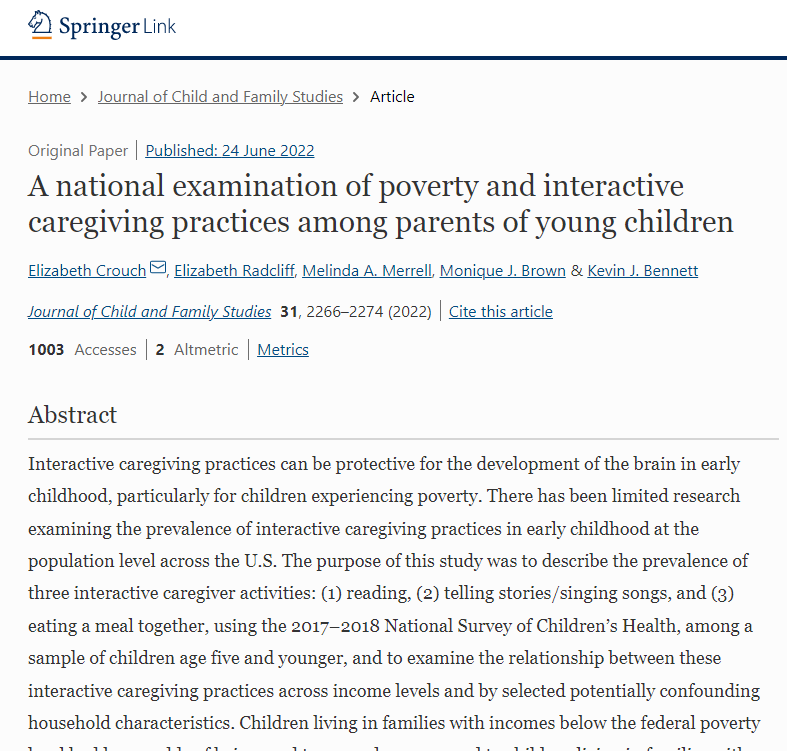Researchers at the Rural and Minority Health Research Center at the University of South Carolina have released their analysis of the National Survey of Children’s Health in which they explore the prevalence of three interactive caregiving activities—reading, storytelling/singing, and sharing meals—among children under age 5, with attention to differences across the income spectrum. The authors found that 37 percent of children were read to every day, 48 percent participated in singing or storytelling, and 54 percent shared a daily meal with their family. Prevalence of each activity was lowest among children living below the poverty line and increased with income. These disparities could not be attributed to family structure, education, language spoken, and race-ethnicity; after statistically controlling for these factors, researchers found that children in poor households were still 30 percent less likely to be read to every day than children in homes with incomes at or above four times the poverty line (no difference in singing/storytelling or meals remained). Further, the authors find that the odds of reading or singing/storytelling for Black and Hispanic children were between 30 and 50 percent lower than their white peers, even after controlling for income and parental education differences. The authors point to the role that systemic racism plays in creating income and time constraints that disproportionately impact parents of color and note that specific interventions to support children of color and enhance interactive caregiving capacity could have long-term implications for educational disparities by income and race-ethnicity.

